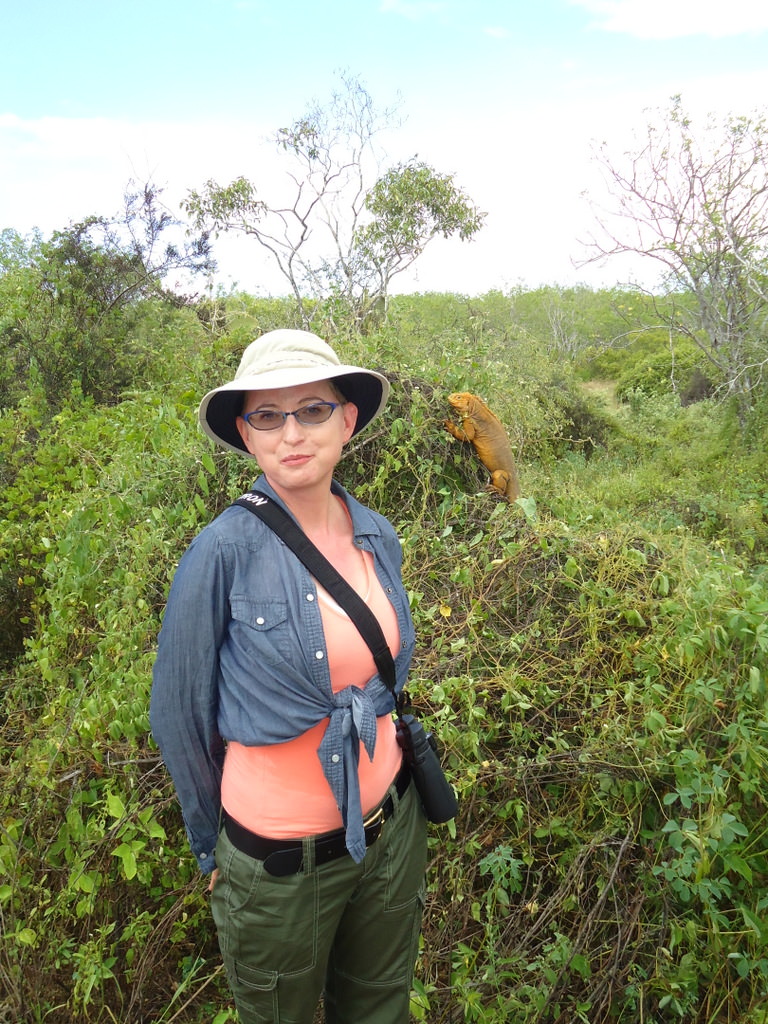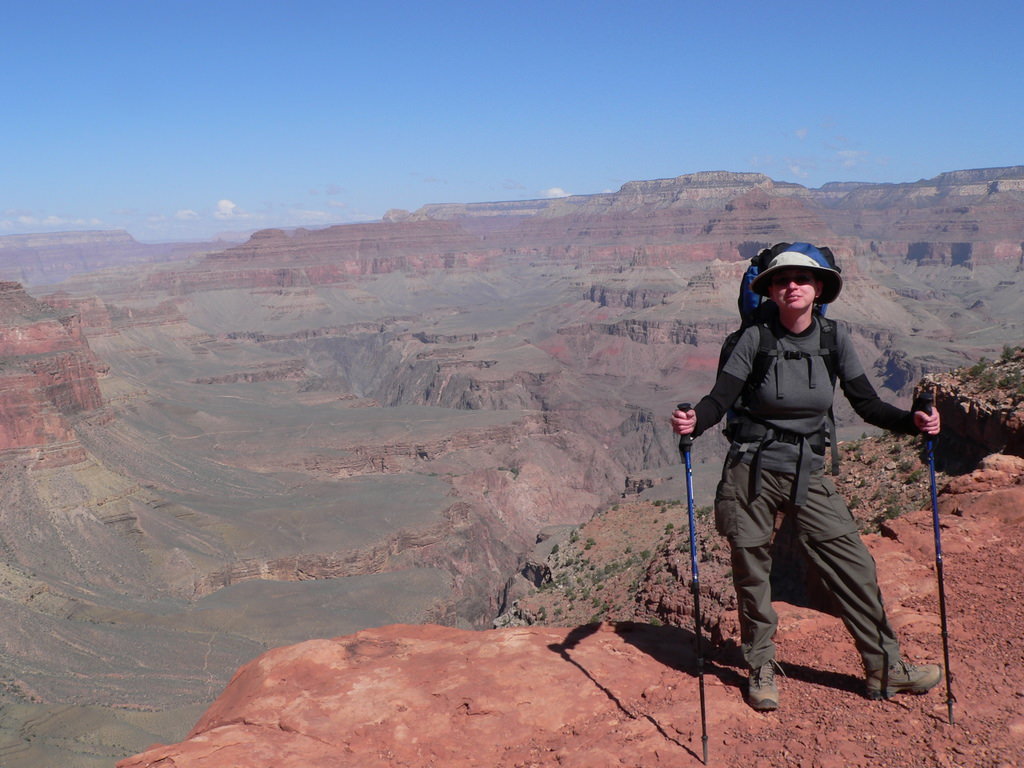A day in the life of Anita Niedziela-Majka, biology senior research scientist at Gilead Sciences, Inc., can be hectic. “As a biophysicist in an industrial setting, I participate in many different projects where I provide expertise in assays development, macromolecular interaction studies, and self-assembly processes,” she says. “Being able to provide data for all projects in a timely manner, attending numerous meetings, keeping track of scientific developments and literature, being creative, and being a good manager at the same time is quite challenging, although stimulating.”
With a background in fluorescence spectroscopy, analytical ultracentrifugation, and label-free technologies for studying biomolecular interactions, Niedziela-Majka is a member of a biochemistry research and development group at Gilead. She is part of multidisciplinary teams developing small molecule drugs against HIV and HCV therapy targets, as well as anti-inflammatory and anti-cancer therapeutic approaches. She provides expert consultation on the quantification of thermodynamics, energetics, and kinetics of interactions between therapeutic molecules and their targets. “My research contributes to demonstrating the specificity of binding events and provides data enabling the establishment of structure activity relationships that ultimately allow for improvement of potency of therapeutic molecules,” she explains. “Moreover, I am involved in understanding how the binding of therapeutic molecules to the target results in an amendment of target function—a mode of action studies.” For Niedziela-Majka, being part of these multidisciplinary project teams is what makes her job so much fun. “Imagine having many collaborators who are experts in diverse disciplines all under one roof and working with you to solve the questions you are after,” she says. “You just walk down the hall and can talk to protein chemists, crystallographers, cell biologists, virologists, medicinal chemists, computational scientists, high-throughput specialists, and metabolism experts. The research has a fast speed and is very collaborative.”
I love the quantitative and predictive aspect of biophysics and the complementarity of data which are obtained with orthogonal approaches…Often I have a feeling that I am solving a big jigsaw puzzle whereby pieces of data—binding, crystallographic, computational, kinetic—neatly fit with each other and give a complete picture.
-Niedziela-Majka
Niedziela-Majka’s interest in science was fueled when she was in high school in Kedzierzyn-Kozle, Poland, where her studies were heavily concentrated in math and physics. Her father, an engineer, and her mother, an administrative assistant, supported Niedziela-Majka’s career choice from the beginning. Now retired, they enjoy discussing the details of lab work with their daughter and the implications of her research on the lives of everyday people. “They are very proud of my accomplishments, even the smallest ones,” says Niedziela-Majka. After high school, she went on to the Wroclaw University of Technology, where she earned her MSc in biotechnology and her PhD in biochemistry and organic chemistry. She then completed two postdoctoral fellowships, both in St. Louis, Missouri.  The first, in Tomasz Heyduk’s lab at Saint Louis University, was focused on fluorescence spectroscopy. “Anita was absolutely an outstanding colleague who has made enormous contributions to the progress in my lab,” says Heyduk. “Although many years have passed since she left the lab, I am still finding results in her notebooks that provide motivation and guidance for the current work in our lab.” Niedziela-Majka proved just as valuable a colleague in her second postdoctoral fellowship, with Timothy M. Lohman at Washington University. There, she applied analytical ultracentrifugation, kinetics, and label-free technologies in a life science setting. “Anita is incredibly energetic, a very hard worker, and a constant pleasure to be around,” says N. Karl Maluf, an assistant professor at the Skaggs School of Pharmacy and Pharmaceutical Sciences at the University of Colorado Denver, who was a graduate student in Lohman’s lab with Niedziela-Majka. “Scientifically, she is fearless. She will tackle any project, no matter how challenging, and do it with a smile on her face.”
The first, in Tomasz Heyduk’s lab at Saint Louis University, was focused on fluorescence spectroscopy. “Anita was absolutely an outstanding colleague who has made enormous contributions to the progress in my lab,” says Heyduk. “Although many years have passed since she left the lab, I am still finding results in her notebooks that provide motivation and guidance for the current work in our lab.” Niedziela-Majka proved just as valuable a colleague in her second postdoctoral fellowship, with Timothy M. Lohman at Washington University. There, she applied analytical ultracentrifugation, kinetics, and label-free technologies in a life science setting. “Anita is incredibly energetic, a very hard worker, and a constant pleasure to be around,” says N. Karl Maluf, an assistant professor at the Skaggs School of Pharmacy and Pharmaceutical Sciences at the University of Colorado Denver, who was a graduate student in Lohman’s lab with Niedziela-Majka. “Scientifically, she is fearless. She will tackle any project, no matter how challenging, and do it with a smile on her face.”
Now a senior scientist, Niedziela-Majka’s enthusiasm creates a spirited, productive atmosphere surrounding her projects. “She is very innovative and creative,” says Elaine Kan, who reports to Niedziela-Majka at Gilead. “Anita is my mentor and she is wonderful. Her management skills show great support and provide good direction.” Niedziela-Majka’s talent for mentoring is no fluke; she taught classes and seminars in biochemistry and molecular biology while completing her doctoral thesis in Poland. “I love teaching and interacting with young scientists,” she says, “being a mentor to a younger colleague is extremely rewarding.” Iwona Grad, a former student of Niedziela-Majka’s, certainly benefited from the relationship. “As a teacher Anita is very calm and competent, and also has tons of patience,” says Grad. “As a colleague, she was always very helpful, always had time to answer questions, to explain, and to give a hand if needed.” As a scientist in industry, Niedziela-Majka is a wealth of knowledge about pursuing such a career. “In industry, at the beginning of your career, you will concentrate on exploiting your strongest skills. You will serve as an expert in your field,” she says. “As you grow, you will be required to broaden your understanding of the discovery process and explore new areas of science that are outside your immediate expertise, and you will need to understand data coming from diverse studies—virology, metabolism, physiology, animal studies—and make decisions.” She knows it is important to start by putting your best foot forward. “Be prepared for an interview,” she advises. “Do not dilute your skills, emphasize the strongest ones. Do your homework and learn about the company and the people with whom you are about to interview. Ask questions, as it shows that you are really interested in joining the group.”
 Another key point: networking. “Networking is very important if you are looking for position in industry,” according to Niedziela-Majka. “Talk to people about your research during scientific meetings, and treat poster sessions as opportunities to present—and sell—your skills.” For Niedziela-Majka, Biophysical Society Annual Meetings create a useful venue for such exchanges. “Society events provide a unique opportunity to meet friends and collaborators, and they reveal new trends in various areas, new and innovative approaches, and emerging technologies,” she says. Niedziela-Majka also attends the meetings “to meet people you can email when you have questions or problems with laboratory instruments. It’s the only place where you can find vendors of all the scientific equipment that you have in your lab or that you wish you could purchase.”
Another key point: networking. “Networking is very important if you are looking for position in industry,” according to Niedziela-Majka. “Talk to people about your research during scientific meetings, and treat poster sessions as opportunities to present—and sell—your skills.” For Niedziela-Majka, Biophysical Society Annual Meetings create a useful venue for such exchanges. “Society events provide a unique opportunity to meet friends and collaborators, and they reveal new trends in various areas, new and innovative approaches, and emerging technologies,” she says. Niedziela-Majka also attends the meetings “to meet people you can email when you have questions or problems with laboratory instruments. It’s the only place where you can find vendors of all the scientific equipment that you have in your lab or that you wish you could purchase.”
When she’s not working among her lab equipment, Niedziela-Majka and her husband, Jurek Majka, also a scientist, find many ways to relax, including cooking, traveling, and watching the Science Channel. “We understand each other very well,” Majka says. These days, Niedziela-Majka is learning the birdwatching ropes from her husband, a veteran birdwatcher. “This hobby is well suited for a scientist,” she observes. “It requires a lot of patience, a great dose of knowledge, extensive experience, and a bit of luck—and of course, getting up early and going to bed late.”
When Niedziela-Majka goes to work the next day, she knows that while it might be hectic, it is undeniably worth it. “It’s a very rewarding feeling that my research contributes to the discovery of drugs that can treat life-threatening diseases or address areas of unmet medical needs,” she says. And she’ll have new developments on those fronts to discuss with her parents the next time she sees them.